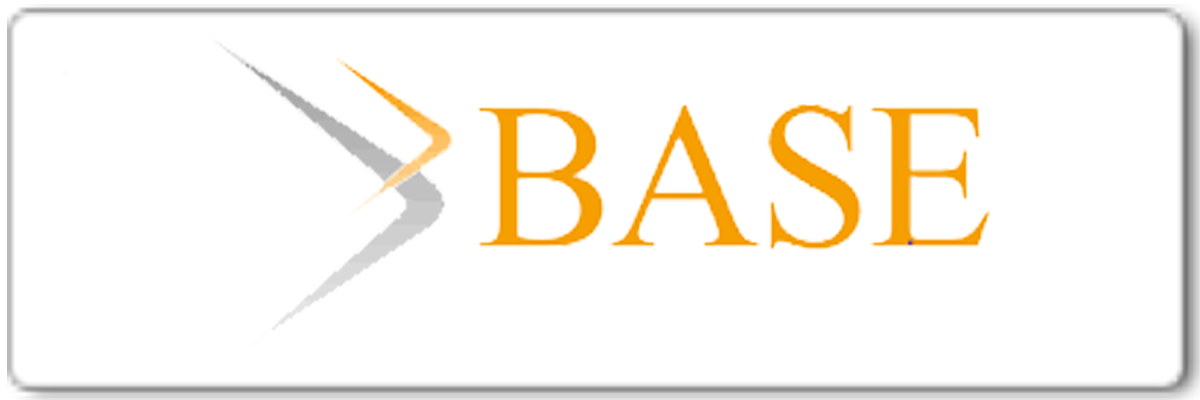The Effect of Problem-Based Learning and Students' Understanding of Physics Concepts On The Topic of The Doppler Effect
Abstract
Keywords
Full Text:
PDF (English)References
Keller, M. M., Neumann, K., & Fischer, H. E. (2017). The impact of physics teachers’ pedagogical content knowledge and motivation on students’ achievement and interest. Journal of Research in Science Teaching, 54(5): 586-614.
Oon, P. T., & Subramaniam, R. (2011). On the declining interest in physics among students-from the perspective of teachers. International journal of Science education, 33(5): 727-746.
Kwarikunda, D., Schiefele, U., Ssenyonga, J., & Muwonge, C. M. (2020). The relationship between motivation for, and interest in, learning physics among lower secondary school students in Uganda. African Journal of Research in Mathematics, Science and Technology Education, 24(3): 435-446.
Potvin, P., & Hasni, A. (2014). Interest, motivation and attitude towards science and technology at K-12 levels: a systematic review of 12 years of educational research. Studies in science education, 50(1):, 85-129.
Volkwyn, T. S., Airey, J., Gregorcic, B., & Linder, C. (2020). Developing representational competence: linking real-world motion to physics concepts through graphs. Learning: Research and Practice, 6(1): 88-107.
Wilson, M. T., Seshadri, S., Streeter, L. V., & Scott, J. B. (2020). Teaching physics concepts without much mathematics: ensuring physics is available to students of all backgrounds. Australasian Journal of Engineering Education, 25(1): 39-54.
Baquete, A. M., Grayson, D., & Mutimucuio, I. V. (2016). An exploration of indigenous knowledge related to physics concepts held by senior citizens in Chókwé, Mozambique. International Journal of Science Education, 38(1): 1-16.
Zacharia, Z. C., & De Jong, T. (2014). The effects on students’ conceptual understanding of electric circuits of introducing virtual manipulatives within a physical manipulatives-oriented curriculum. Cognition and instruction, 32(2): 101-158.
Harrell, P., & Subramaniam, K. (2015). Elementary pre-service teachers’ conceptual understanding of dissolving: A Vygotskian concept development perspective. Research in Science & Technological Education, 33(3): 304-324.
Subramaniam, K., Harrell, P. E., Long, C. S., & Khan, N. (2020). Pre-service elementary teachers’ conceptual understanding of average speed: the systematicity and persistence of related and unrelated concepts. Research in Science & Technological Education: 1-18.
Bungum, B., Bøe, M. V., & Henriksen, E. K. (2018). Quantum talk: How small‐group discussions may enhance students’ understanding in quantum physics. Science Education, 102(4): 856-877.
Farhangi, S. (2018). Contribution to activity: a lens for understanding students’ potential and agency in physics education. Cultural Studies of Science Education, 13(3): 617-637.
Özkan, G., & Umdu Topsakal, Ü. (2020). Determining students’ conceptual understandings of physics concepts. Shanlax International Journal of Education, 8(3).
Stein, H., & Galili, I. (2015). The Impact Of An Operational Definition Of The Weight Concept On Students’understanding. International Journal of Science and Mathematics Education, 13(6): 1487-1515.
Arista, F. S., & Kuswanto, H. (2018). Virtual Physics Laboratory Application Based on the Android Smartphone to Improve Learning Independence and Conceptual Understanding. International Journal of Instruction, 11(1): 1-16.
Mosabala, M. (2018). Teachers’ transformed subject matter knowledge structures of the doppler effect. EURASIA Journal of Mathematics, Science and Technology Education, 14(6): 2407-2417.
Viennot, L., & Leroy-Bury, J. L. (2004). Doppler and Römer: what do they have in common?. Physics Education, 39(3): 273.
Koponen, I. T., & Pehkonen, M. (2010). Coherent knowledge structures of physics represented as concept networks in teacher education. Science & Education, 19(3): 259-282.
Neipp, C., Hernández, A., Rodes, J. J., Márquez, A., Beléndez, T., & Beléndez, A. (2003). An analysis of the classical Doppler effect. European journal of physics, 24(5): 497.
Gómez-Tejedor, J. A., Castro-Palacio, J. C., & Monsoriu, J. A. (2014). The acoustic Doppler effect applied to the study of linear motions. European Journal of Physics, 35(2): 025006.
Coman, I. M. (2005). Christian Andreas Doppler–the man and his legacy. European Journal of Echocardiography, 6(1): 7-10.
Hedrick, W. R. (2005). A guide to clinical safety. Journal of Diagnostic Medical Sonography, 21(6): 455-461.
Tarabrin, G. (2016). Radiated and reflected Doppler effects. Journal of Electromagnetic Waves and Applications, 30(3): 375-389.
Dias, M. A., Carvalho, P. S., & Ventura, D. R. (2016). How to study the Doppler effect with Audacity software. Physics Education, 51(3): 035002.
Mosabala, M. S. (2014). The teaching of doppler effect at grade 12-teacher’s content knowledge. Mediterranean Journal of Social Sciences, 5(14): 207-207.
Kaura, L. P., & Pathak, P. (2017). A pedagogical model for the doppler effect with application to sources with constant accelerations. The Physics Teacher, 55(1): 36-37.
Saripudin, A., Rustiawan, D., & Suganda, A. (2009). Praktis belajar fisika untuk kelas XII Sekolah Menengah Atas/Madrasah Aliyah Program Ilmu Pengetahuan Alam. Jakarat: Pusat Perbukuan Departemen Pendidikan Nasional.
Hoyt, D. (2002). A different viewpoint on Doppler-effect calculations. The Physics Teacher, 40(1): 14-16.
Perusso, A., & Baaken, T. (2020). Assessing the authenticity of cases, internships and problem-based learning as managerial learning experiences: Concepts, methods and lessons for practice. The International Journal of Management Education, 18(3): 100425.
Seibert, S. A. (2021). Problem-based learning: A strategy to foster generation Z's critical thinking and perseverance. Teaching and Learning in Nursing, 16(1): 85-88.
Servant-Miklos, V. F. (2019). The Harvard connection: How the case method spawned problem-based learning at McMaster University. Health Professions Education, 5(3): 163-171.
Hendry, G., Wiggins, S., & Anderson, T. (2016). The discursive construction of group cohesion in problem-based learning tutorials. Psychology Learning & Teaching, 15(2): 180-194.
Chen, R. (2016). Learner perspectives of online problem-based learning and applications from cognitive load theory. Psychology Learning & Teaching, 15(2): 195-203.
Sutton, P. S., & Knuth, R. (2017). A schoolwide investment in problem-based learning. Phi Delta Kappan, 99(2): 65-70.
Pu, D., Ni, J., Song, D., Zhang, W., Wang, Y., Wu, L., ... & Wang, Y. (2019). Influence of critical thinking disposition on the learning efficiency of problem-based learning in undergraduate medical students. BMC medical education, 19(1): 1-8.
Barrows, H. S. (1996). Problem‐based learning in medicine and beyond: A brief overview. New directions for teaching and learning, 1996(68): 3-12.
Salari, M., Roozbehi, A., Zarifi, A., & Tarmizi, R. A. (2018). Pure PBL, Hybrid PBL and Lecturing: which one is more effective in developing cognitive skills of undergraduate students in pediatric nursing course?. BMC medical education, 18(1): 1-15.
Haruehansawasin, S., & Kiattikomol, P. (2018). Scaffolding in problem-based learning for low-achieving learners. The Journal of Educational Research, 111(3): 363-370.
Chan, Z. C. (2017). A qualitative study on using concept maps in problem-based learning. Nurse education in practice, 24: 70-76.
Khoiriyah, U., Roberts, C., Jorm, C., & Van der Vleuten, C. P. M. (2015). Enhancing students’ learning in problem based learning: validation of a self-assessment scale for active learning and critical thinking. BMC Medical Education, 15(1): 1-8.
Zhao, W., He, L., Deng, W., Zhu, J., Su, A., & Zhang, Y. (2020). The effectiveness of the combined problem-based learning (PBL) and case-based learning (CBL) teaching method in the clinical practical teaching of thyroid disease. BMC medical education, 20(1): 1-10.
Baran, M., & Sozbilir, M. (2018). An application of context-and problem-based learning (C-PBL) into teaching thermodynamics. Research in Science Education, 48(4): 663-689.
Komasawa, N., Berg, B. W., & Minami, T. (2018). Problem-based learning for anesthesia resident operating room crisis management training. Plos one, 13(11): e0207594.
Saqr, M., Fors, U., & Nouri, J. (2018). Using social network analysis to understand online Problem-Based Learning and predict performance. PloS one, 13(9): e0203590.
Wilder, S. (2015). Impact of problem-based learning on academic achievement in high school: a systematic review. Educational Review, 67(4): 414-435.
McQuade, R., Ventura-Medina, E., Wiggins, S., & Anderson, T. (2020). Examining self-managed problem-based learning interactions in engineering education. European Journal of Engineering Education, 45(2): 232-248.
Raath, S., & Golightly, A. (2017). Geography education students' experiences with a problem-based learning fieldwork activity. Journal of Geography, 116(5): 217-225.
Gallagher, S. A., Sher, B. T., Stepien, W. J., & Workman, D. (1995). Implementing problem‐based learning in science classrooms. School Science and mathematics, 95(3): 136-146.
Zhang, Y., Xu, G., Hou, J., Shi, P., Chang, S., Wu, A., ... & Shi, J. (2019). Problem-based learning could tackle the issue of insufficient education and adherence in people living with HIV/AIDS. Frontiers in pharmacology: 901.
Da Silva, A. B., de Araújo Bispo, A. C. K., Rodriguez, D. G., & Vasquez, F. I. F. (2018). Problem-based learning: A proposal for structuring PBL and its implications for learning among students in an undergraduate management degree program. Revista de Gestão.
Robinson, L., Harris, A., & Burton, R. (2015). Saving face: Managing rapport in a problem-based learning group. Active learning in higher education, 16(1): 11-24.
Pineda, A. V., & Niero, M. (2020, May). What Is Sustainable Design Engineering (Sde)? Perspectives From a Problem-Based Learning Education: M. Sc. in Sde At Aalborg University Copenhagen. In Proceedings of the Design Society: DESIGN Conference (Vol. 1, pp. 1825-1834). Cambridge University Press.
Nagarajan, S., & Overton, T. (2019). Promoting systems thinking using project-and problem-based learning. Journal of Chemical Education, 96(12): 2901-2909.
Costantino, L., & Barlocco, D. (2019). Teaching an undergraduate organic chemistry laboratory course with a tailored problem-based learning approach. Journal of Chemical Education, 96(5): 888-894.
Overton, T. L., & Randles, C. A. (2015). Beyond problem-based learning: using dynamic PBL in chemistry. Chemistry Education Research and Practice, 16(2): 251-259.
Günter, T., & Alpat, S. K. (2017). The effects of problem-based learning (PBL) on the academic achievement of students studying ‘Electrochemistry’. Chemistry Education Research and Practice, 18(1): 78-98.
Leasa, M., Batlolona, J. R., & Talakua, M. (2021). Elementary students’ creative thinking skills in science in the Maluku Islands, Indonesia. Creativity Studies, 14(1): 74-89.
Batlolona, J. R., & Souisa, H. F. (2020). Problem Based Learning: Students' Mental Models on Water Conductivity Concept. International Journal of Evaluation and Research in Education, 9(2): 269-277.
McConnell, D. A., Chapman, L., Czajka, C. D., Jones, J. P., Ryker, K. D., & Wiggen, J. (2017). Instructional utility and learning efficacy of common active learning strategies. Journal of Geoscience Education, 65(4): 604-625.
Burke, J., Ditchfield, C., Flynn, M. A., Sneddon, S., & Stapleton, G. (2020). Lessons learned from problem‐based learning. The Clinical Teacher, 17(6): 719-722.
Wijnen, M., Loyens, S. M., Smeets, G., Kroeze, M., & van der Molen, H. (2017). Comparing problem-based learning students to students in a lecture-based curriculum: learning strategies and the relation with self-study time. European Journal of Psychology of Education, 32(3): 431-447.
Kardipah, S., & Wibawa, B. (2020). A Flipped-Blended Learning Model with Augmented Problem Based Learning to Enhance Students’ Computer Skills. TechTrends, 64(3): 507-513.
Janpla, S., & Piriyasurawong, P. (2018). The development of problem-based learning and concept mapping using a block-based programming model to enhance the programming competency of undergraduate students in computer science. TEM Journal, 7(4): 708.
Dring, J. C. (2019). Problem-based learning–Experiencing and understanding the prominence during medical school: Perspective. Annals of medicine and surgery, 47: 27-28.
Pusparini, S. T., Feronika, T., & Bahriah, E. S. (2018). Pengaruh model pembelajaran Problem Based Learning (PBL) terhadap kemampuan berpikir kritis siswa pada materi sistem koloid (“The effect of problem based learning (pbl) learning model on students' critical thinking skills on colloidal system material”). Jurnal Riset Pendidikan Kimia (JRPK), 8(1): 35-42.
Wyness, L., & Dalton, F. (2018). The value of problem-based learning in learning for sustainability: Undergraduate accounting student perspectives. Journal of Accounting Education, 45: 1-19.
Sattarova, U., Groot, W., & Arsenijevic, J. (2021). Student and tutor satisfaction with problem-based learning in azerbaijan. Education Sciences, 11(6): 288.
Tasoğlu, A. K., & Bakaç, M. (2014). The effect of problem based learning approach on conceptual understanding in teaching of magnetism topics. International Journal of Physics & Chemistry Education, 6(2): 110-122.
Yu, K. C., Fan, S. C., & Lin, K. Y. (2015). Enhancing Students’problem-Solving Skills Through Context-Based Learning. International Journal of Science and Mathematics Education, 13(6): 1377-1401.
DOI: http://dx.doi.org/10.26737/jipf.v7i2.2720
Refbacks
- There are currently no refbacks.
Copyright (c) 2022 John Rafafy Batlolona

This work is licensed under a Creative Commons Attribution-NonCommercial 4.0 International License.
Publisher
Institute of Managing and Publishing of Scientific Journals
STKIP Singkawang
Jl. STKIP, Kelurahan Naram, Kecamatan Singkawang Utara, Kota Singkawang, Kalimantan Barat, Indonesia
Website: http://journal.stkipsingkawang.ac.id/index.php/JIPF
Email: [email protected]
JIPF Indexed by:
Copyright (c) JIPF (Jurnal Ilmu Pendidikan Fisika)
ISSN 2477-8451 (Online) and ISSN 2477-5959 (Print)
































